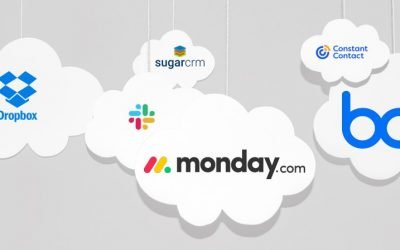Data Leak Protection (DLP)
is the name of several policies in Office 365, setting up what data can, and can’t be, shared and with whom.
Imagine being able to automatically identify private information like passport numbers, Health IDs or bank account details and make sure that those are only being shared with people that are authorised to see them.
The good news is that you can do this with 365, provided you turn on the policies and set them up correctly, and monitor when data is shared.
Under the NZ Privacy Act, we’re all expected to take care of personal data entrusted to us and to make sure it’s only used for the purpose for which is being obtained.
With Office 365, there’s no excuse for that to be breached provided that we understand what data should be kept, what might be kept incorrectly, and how its being shared. With this we can set up rules to monitor your Office 365 system and report on how records are shared.
We include a basic set up of DLP in our KARE for Security S2 plan to get you started.

What you need to know about the massive global ransomware cyber-attack over the weekend
The Risk Is Real. Over the weekend, thousands of businesses were caught up in a global cyber-attack that is being blamed on a Russian hacker group called Revil. It is disappointing when geo-politics impacts everyday business, and the reports talk about President Biden...
(yet) another reason Why paying ransomware demands hurts. (The FBI agrees)
We don't negotiate with terrorists Recently, we asked the question if organisations should pay ransomware demands. There is a balance between desperation and the uneasy knowledge that you might be funding further criminal attacks on the community. We’ve just read a...
Pretending to be you or your colleagues
Just because it seems safe, doesn't mean it is. On some emails, you might see a warning that marks them as being ‘external’. This gets added as the email comes into your organisation. The idea is a simple one – if you see an email marked as external, then you will be...
Avoiding ad trackers when you browse the ‘net
Your own personalised stalker It always seemed slightly creepy that your computer shows advertising that is strangely accurately targeted at things you might have been interested in. On the surface, that seems quite useful. If you have to tolerate ads on your...
Phishing emails are getting smarter every day
In the old days (ie last year!!), a dodgy email had a whiff to it – there was something that triggered your subconscious. That’s because some phishing emails were really badly written with terrible English. But others just had a sniff about them- something that made...
A cyber-criminal only needs to get lucky once. You have to stay ahead of them all day, every day
"A cybercriminal only has to be lucky once, while a defender has to be lucky every minute of every day.” - Combating Ransomware - A Comprehensive Framework for Action: Key Recommendations from the Ransomware Task Force. The message we hear from governance boards over...
Do you know where all your organisations data is? You don’t know what you don’t know
What is 'Shadow IT'? Shadow IT refers to the various web tools informally in use within most organisations. These tools are often chosen without reference to IT or to management in general. They are often used for all the very best reasons. Your colleagues have work...
Bad news email attachments
Some emails are more than just bad news No one likes bad news! But sometimes it can’t be helped. Sometimes it sneaks up on you. One of the most common ransomware attacks is through a compromised attachment in an email. It’s easy to say “only open stuff you expect” but...
Newsflash – US Nuclear secrets leaked online through Shadow IT
This sounds like a nightmare that could never happen. US soldiers have been putting sensitive information online in non-secure third party websites. It defies belief, yet we’re reading that it happened. The story popped up on ‘Gizmodo’ . It is alleged that US Soldiers...
“LOCK ‘EM UP AND THROW AWAY THE KEYS”
Password Vaults and You With more and more websites necessary for our everyday activities, it’s getting harder and harder to manage passwords. By now, you will know not to write passwords on post-it notes and paste them on your screen. It's not uncommon for...









